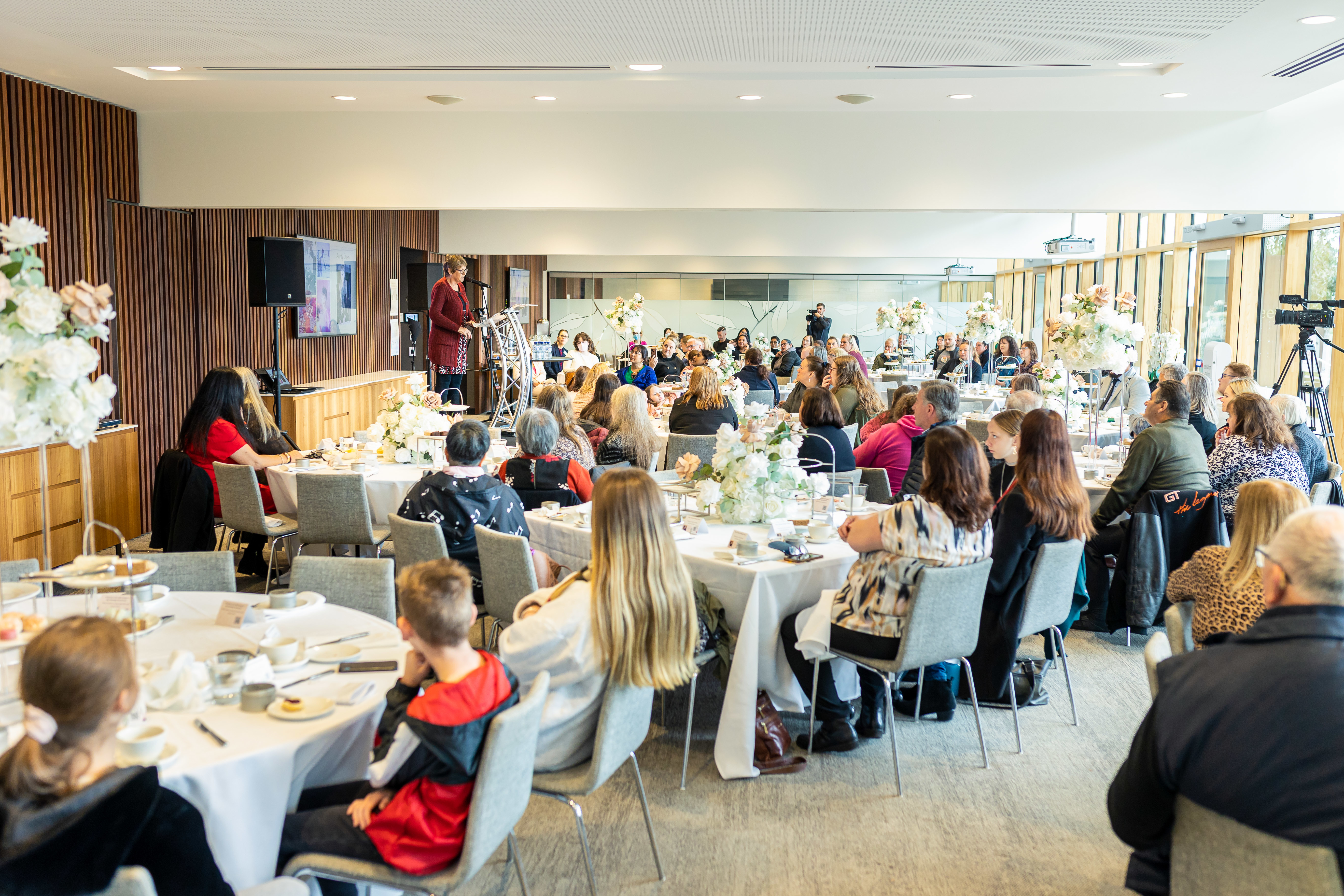Wellbeing tips for working from home

So many people are now working from home and learning to adapt to the new environment of “work.” In 2020 many of us saw this drastic change to the way we worked and it might not be going back to the old way anytime soon.
Although we might have done it for a short while, looking at working from home for a longer period can be daunting and may not set us up for the best wellbeing practices. It’s important to consider your physical and mental health when working from home, just as you would in the workplace.
Regular breaks, socialising, an appropriate workspace, switching off and having time in different environments are all things to consider when working from home.
We’ve put together five tips to help you support your wellbeing even when working from home. You can share your suggestions of things that have helped and supported you via our social media channels too, we would love to hear from you.
Set up a dedicated workspace
Just as you would have a space set out for work in an office type environment, it’s important to create a space at home that will be your regular place of work. Not everyone has the option of dedicating an entire room and creating an office space, but you can find a consistent spot in your home that signals “going to work”.
Having a set spot that you go to each day will help to create a routine, but also mean that the entire house doesn’t become a work zone. There’s the temptation to work from bed, the couch, the outside patio or the kitchen counter, but for a longer period, this won’t work. Of course, you can on a beautiful day mix it up and take your mobile office outside, however having a regular working place will help to keep you in that working vibe and allow other parts of home to be where you switch off and relax.
Switch off
Without the daily commute to and from your workplace, it can be easy to sink into a routine of starting work earlier and also not finishing at what would typically be the end of the work day. Making times to switch off and disconnect from work is more important than ever when working from home.
It can seem easy to just stroll over to the computer and work on a few more things at the end of the day. You may be tempted to tidy your email inbox on your phone while sitting on the couch now that you’re remotely connected. But having some set boundaries around work time and home time, even if you do still go to an office space, is so important for your mental wellbeing.
You might choose to break up the day with a walk at the end of it to signal finishing work, or perhaps start by heading to the kitchen in the morning for a coffee like you would have got a coffee on the way to work previously. Find some ways to mark the start and end of the day that help you to switch off and refresh.
Get some fresh air
It sounds so simple, but making sure you have fresh air in your work day can do wonders for your mental and physical health. You might decide to setup your home office near a window which is great for keeping a connection with the outside world, and even better if it opens. But a quick little stroll out the front door into the natural air can be so beneficial and instantly refreshing.
When you were going to work, you would have had time transitioning from home to the office where you would have got that dose of outdoors. Even for a minute. So now that you’re at home, make sure that there’s even five minutes of “outdoors” time included in your day – 30 minutes would be even better coupled with a walk – but if just a few deep breaths outside is what you can do, you’ll notice a lift in your mood and a boost in your productivity.
Take breaks
We know it seems obvious but without the influence of the usual work day and other colleagues around you, it can be easy to forget to take breaks.
Setting aside time for morning tea, lunch and afternoon tea breaks is a great place to start. But if at any time in the day you need a breather, you can take it. Even ten minutes to go and make yourself a coffee, or just stare out the window. You’re probably being a lot more productive without distractions of activity in the workplace so you may need to take more breaks when working from home. If you’re feeling tired, overwhelmed or frustrated, it’s probably time for a break.
Reach out to friends
When you’re at home and away from the social element that work can also bring, you will need your friends more than ever. You may even find they are in the same position and would really like some social interaction to break up the day.
Send a message to a friend and check-in to see how they’re going, or ask them if they have time for a chat. It doesn’t have to be long but the sound of a caring friends voice and a light-hearted catch up can really help to get through the work day. You might even like to schedule in a regular coffee meet up virtually with a friend to help you both take a break and get that social boost.
Working from home is not always easy and sometimes we need support, so if you’re finding things challenging at the moment, we have some places below where you can seek further support.
If you are feeling worried, low or struggling to cope, please call Lifeline or Beyond Blue for immediate help and support.
Lifeline
Lifeline provides all Australians experiencing a personal crisis with access to online, phone and face-to-face crisis support and suicide prevention services.
24 Hr Telephone Crisis Support – 13 11 14
Beyond Blue
No matter how the coronavirus pandemic is affecting you, Beyond Blue has information, strategies and expert advice to help support you.
Call 1800 512 348 24 hours / 7 days a week
For additional support during COVID-19, Beyond blue have created this dedicated space:
Online forums 24 hours / 7 days a week
If you need support while grieving and would like to look at some gentle activities with guidance, visit the Centre for Care & Wellbeing page support.
If you're in need of additional support when grieving, please contact Grief Australia for resources and guidance - 1800 642 066. Grief Australia is the largest provider of grief and bereavement education in Australia, providing support for bereaved and grieving Australians for more than 22 years.





